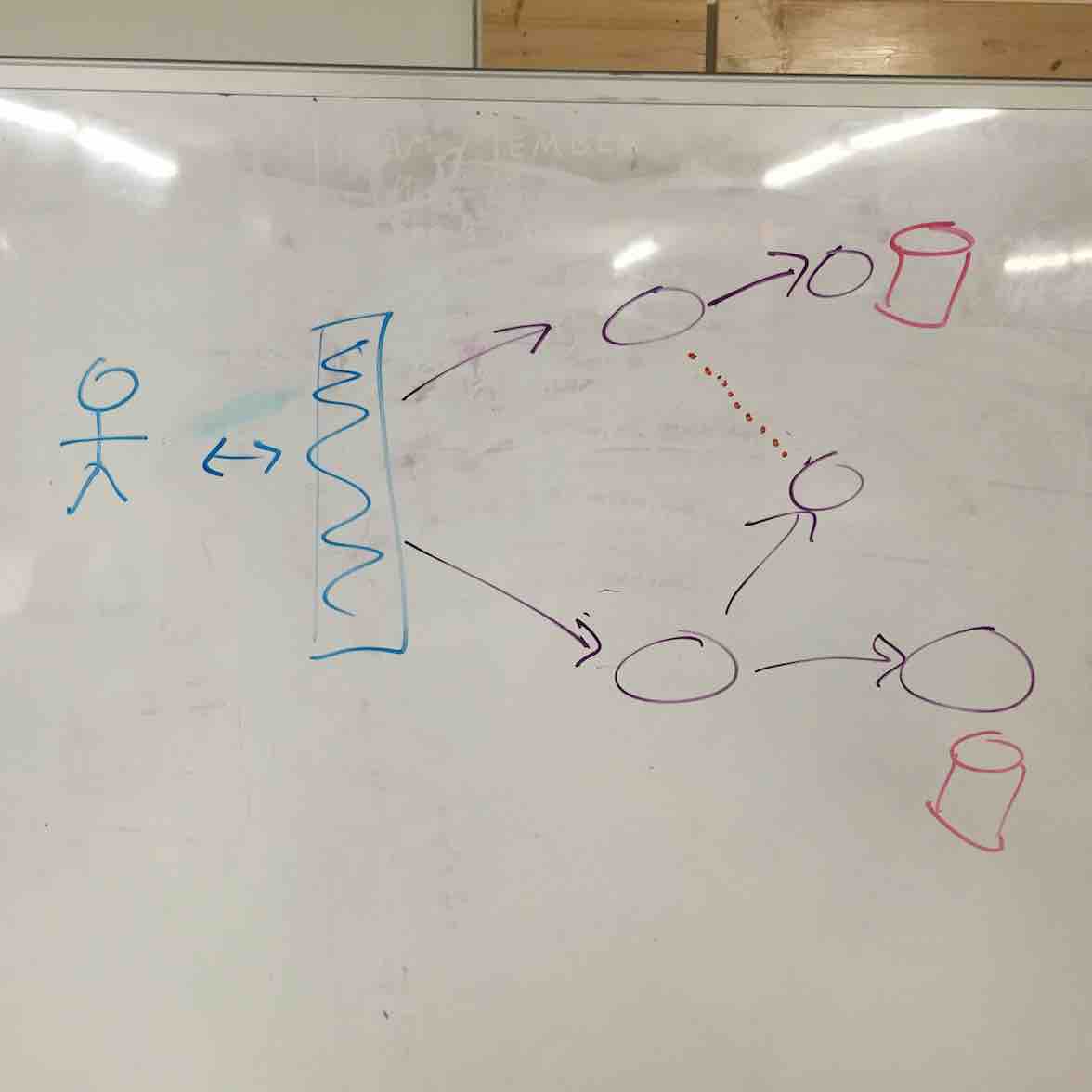Smart Photo Album for Whiteboard Images
Let’s face it, I’m kind of in love with whiteboards. They are a fantastic collaboration tool, even for people who really suck at drawing (like myself) or have terrible handwriting (like myself) or don’t always remember which way UML arrows are supposed to point (like myself).
There’s plenty of space and no constraints—freedom to describe almost anything and to easily erase, modify, and iterate. The benefits of the physical medium, however, are not without drawbacks. As a consequence, I have a bunch of project ideas related to whiteboards, and here’s one.
At the end of a good whiteboard discussion, it seems like somebody is always taking a photo with their phone to preserve the board for posterity. At least that’s what I do more often that not. You never know when you might want to refer to that diagram later, or maybe re-draw it as part of another conversation.
The trouble is, it’s not very easy to find that photo again when you need it later. I probably have hundreds of whiteboard images on my phone, but even that many are absolutely lost among the 9,065 total (at last count). The vast majority are photos of my kids with varying degrees of motion blur, so it’s hard to sift through and find a whiteboard image. It would be great if I could somehow see only the whiteboard photos.
The Project
Build a mobile app that filters the camera roll to show only photos that look like whiteboards. You might identify the whiteboard photos with a few simple heuristics:
- Mostly white-ish, mostly flat-ish background
- Some distinct, high-contrast curves (marker lines)
- No humans in the photo (typically)
Stick figures, of course, are perfectly reasonable:

The goal isn’t perfection, it’s just to make it easier for a user to find whiteboards in the haystack of their photo library. I may be missing something obvious that would simplify the problem space further, so have fun!
The Competition
Google Photos has a similar sort of magic, but this case is almost certainly less complex because we’re not trying to identify and cross reference people and places across images. This also doesn’t seem like a very sexy new feature for Google to implement (although if anyone reads this and decides to do so, yay!).
Bonus Points
Machine learning comes to mind. If the app mis-identifies a photo, it would be awesome if it could learn from its own mistakes.